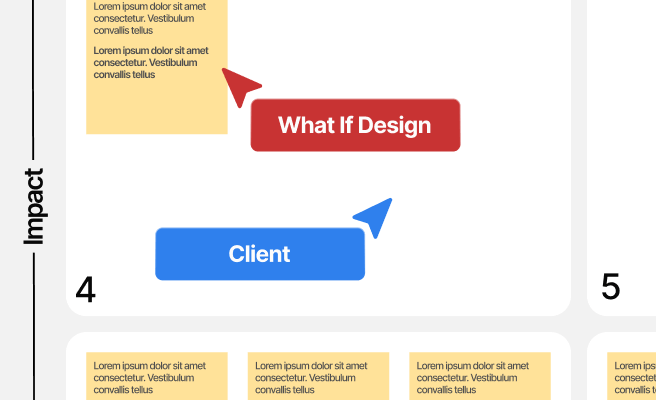Randomization
<p>Randomization is a statistical technique used to ensure that different variables are distributed without bias. It plays a crucial role in various fields, including clinical trials, product testing, and quality control. By randomly assigning subjects or items to different groups, randomization helps eliminate potential biases and ensures that any differences observed are due to the treatment or intervention itself rather than other factors.</p>
<p>Historically, randomization has been a cornerstone in scientific research and experimental design. Its importance was first recognized in the early 20th century, and it has since become a fundamental principle for ensuring the validity and reliability of experimental results.</p>
<h2>Importance of Randomization in Experiments</h2>
<p>Randomization is essential for achieving unbiased and reliable results in experiments. By randomly assigning subjects to different groups, researchers can be confident that each group is comparable and that the effects observed are due to the intervention being tested. This is particularly important in <a href="https://www.fda.gov/patients/clinical-trials-what-patients-need-know" style="color: #2896FF; text-decoration: underline;">clinical trials</a>, where randomization ensures that patients receiving a new treatment are similar to those receiving a placebo.</p>
<h3>Types of Randomization</h3>
<p>There are several types of randomization techniques, each suited to different experimental designs:</p>
<ul>
<li><b>Simple Randomization:</b> The most straightforward method, involving the random assignment of subjects to groups purely by chance.</li>
<li><b>Stratified Randomization:</b> This method divides subjects into strata or subgroups based on certain characteristics, then randomly assigns subjects within each stratum to different groups. This ensures that each group is balanced with respect to the stratified characteristics.</li>
<li><b>Block Randomization:</b> Used to ensure that groups are of equal size. Subjects are divided into blocks, and each block is randomly assigned to different groups.</li>
</ul>
<h3>Benefits of Randomization</h3>
<p>Randomization offers several key benefits:</p>
<ul>
<li>Eliminates selection bias, ensuring that each participant or unit has an equal chance of being assigned to any group.</li>
<li>Balances known and unknown confounding variables across groups, improving the internal validity of the study.</li>
<li>Facilitates blinding in experiments, reducing the potential for bias in outcome assessment.</li>
</ul>
<h3>Challenges and Solutions in Randomization</h3>
<p>While randomization is a powerful tool, it can present certain challenges. One common challenge is maintaining the randomization process in the face of practical constraints, such as logistical issues or ethical considerations. Solutions to these challenges include:</p>
<ul>
<li><b>Using computerized randomization tools:</b> These tools automate the randomization process and ensure that it is conducted without bias. Examples include <a href="https://www.randomizer.org/" style="color: #2896FF; text-decoration: underline;">Randomizer.org</a> and <a href="https://www.sealedenvelope.com/" style="color: #2896FF; text-decoration: underline;">Sealed Envelope</a>.</li>
<li><b>Implementing allocation concealment:</b> This technique ensures that the researchers and participants are unaware of the upcoming group assignments, preventing selection bias.</li>
</ul>
<h2>Real-world Applications of Randomization</h2>
<p>Randomization is widely used in various sectors, including healthcare, marketing, and technology. In healthcare, <a href="https://www.nature.com/articles/s41591-020-0851-8" style="color: #2896FF; text-decoration: underline;">randomized controlled trials (RCTs)</a> are the gold standard for testing new treatments and interventions. For example, during the COVID-19 pandemic, RCTs were critical in evaluating the efficacy and safety of vaccines.</p>
<p>In the field of marketing, companies often use <a href="https://optinmonster.com/a-b-testing-guide-how-to-get-started-with-ab-testing/" style="color: #2896FF; text-decoration: underline;">A/B testing</a> to optimize their digital content and user experience. By randomly assigning users to different versions of a webpage or advertisement, marketers can determine which version performs better and make data-driven decisions to improve engagement and conversion rates.</p>
<h2>Conclusion</h2>
<p>Randomization is a foundational concept in the design and execution of experiments across various fields. By eliminating biases and balancing confounding variables, randomization enhances the validity and reliability of experimental results. Whether in clinical trials, marketing, or technology, the use of randomization techniques continues to drive innovation and ensure robust, trustworthy outcomes.</p> <p>We’re using the power of design to increase the adoption of climate technologies and innovation. View our work in climate to know more on how we can support your vision. <a href="https://www.whatifdesign.co/climate" style="color:#2896FF; text-decoration:underline;">View our climate projects</a>.</p> <p>Increase user engagement that converts your demos into sales. Optimise your UX strategies with our audits.
<p>Fill out the <a href="https://tally.so/r/n97pxQ" style="color:#2896FF; text-decoration:underline;">UX Audit form</a> to get started. Ready to discuss your needs? <a href="https://cal.com/akhilak/what-if-design?duration=25" style="color:#2896FF; text-decoration:underline;">Book a consultation call</a> with us today.</p></p>

Let's scale your impact with great design.
Free consultation, no sales pitch
Thank you! Your submission has been received!
Oops! Something went wrong while submitting the form.
Let’s talk
Nothing great is built alone.
Let’s connect about your vision, our work and how we can collaborate.
Get in touch

